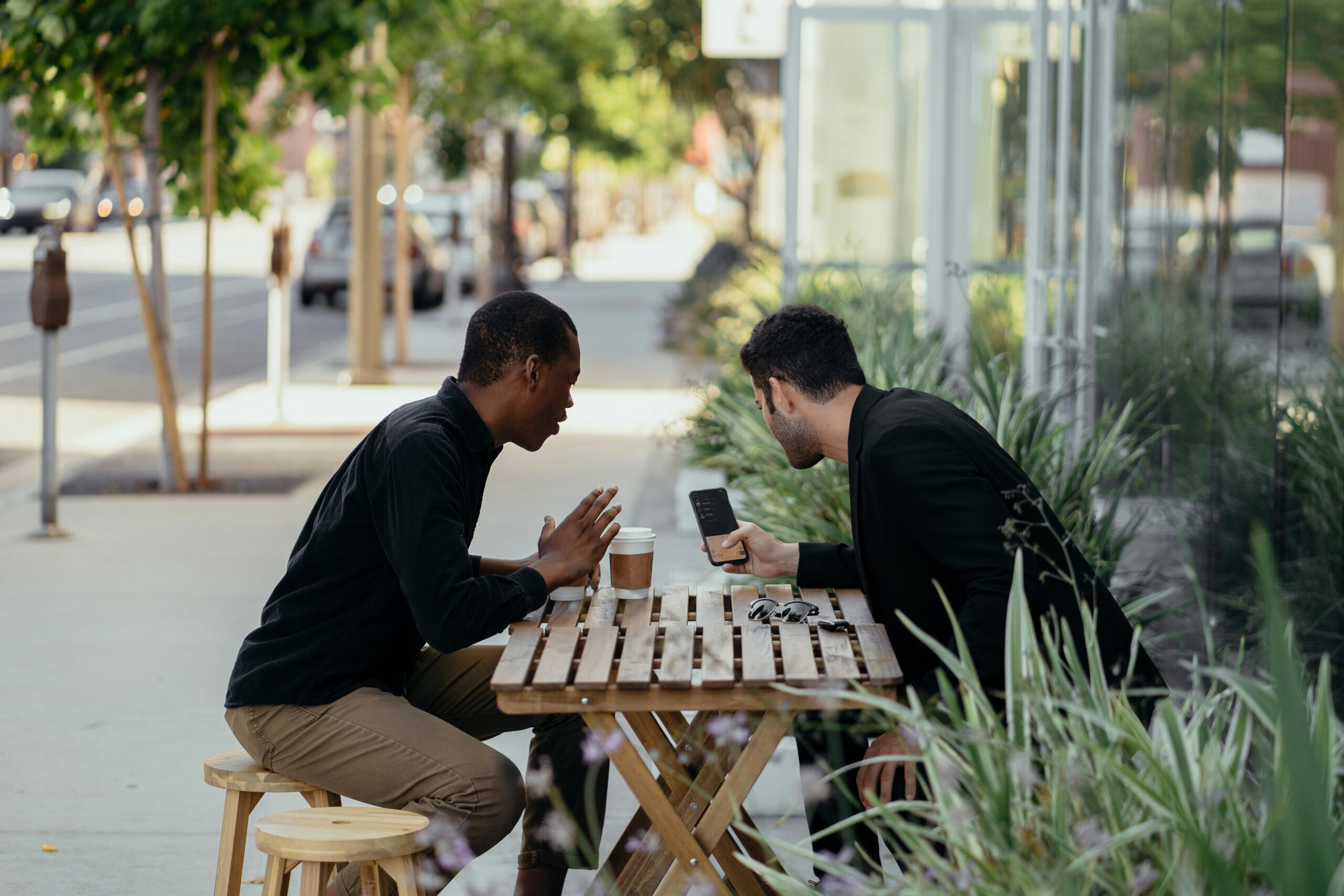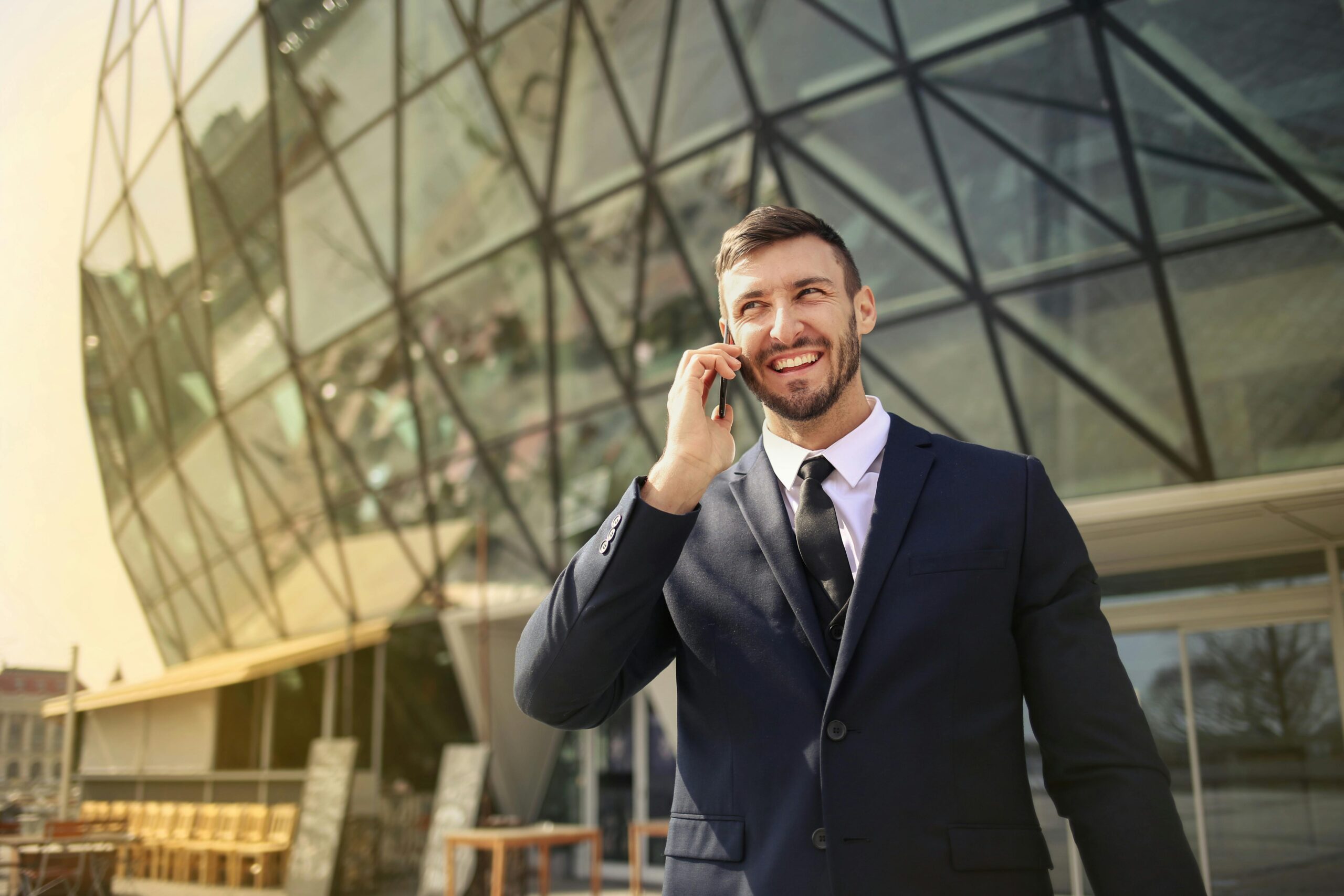
Networking Sober in Los Angeles: Socializing Without Using
Medically Reviewed by:

Dr. Marco M. Zahedi
Medical Director, Compassion Recovery Center

Dr. Michael Majeski
Licensed Psychologist (LP), Compassion Recovery Center
Table of Contents
The New Vibe: Thriving Socially and Professionally Without Alcohol in Los Angeles
Los Angeles, a city renowned for its vibrant nightlife, endless entertainment, and high-stakes professional networking, can often feel like a landscape where alcohol is an ever-present fixture. From gallery openings in the Arts District to beach parties in Malibu, and industry mixers in Hollywood, the pressure to drink can be subtle yet pervasive. For individuals in recovery or those choosing a sober lifestyle, navigating this social and professional terrain presents unique challenges. How do you build connections, advance your career, or simply enjoy the rich social tapestry of L.A. without alcohol as a social lubricant? The good news is that “networking sober Los Angeles” is not just a possibility; it’s a growing movement, offering a wealth of opportunities for authentic connection and personal growth. Maintaining sobriety while actively engaging in social and professional circles is paramount. It’s about finding a new rhythm, a way to be present and genuine in your interactions without the crutch of substances. This journey isn’t always easy. You might encounter old triggers, face questions from acquaintances, or feel a momentary sense of awkwardness when you’re the one ordering a sparkling water while others opt for cocktails. However, the rewards of “sober socializing Los Angeles” are immense. It allows for clearer communication, deeper relationships built on shared interests rather than shared intoxication, and a stronger sense of self. Furthermore, embracing sobriety in these settings can be incredibly empowering, reinforcing your commitment to your well-being and recovery. This guide is designed to help you explore the exciting world of sober networking and socializing in Los Angeles. We’ll delve into the burgeoning sober scene, highlight the benefits of alcohol-free interactions, provide practical strategies for navigating events, and discuss how technology can be a powerful ally. Crucially, we’ll also explore how specialized support, like the flexible Virtual IOP Program offered by Compassion Recovery Center, can provide the tools and confidence needed to thrive. If you’re ready to discover how to build a fulfilling social and professional life in L.A. on your own terms, without alcohol, you’re in the right place. Your journey to authentic connection starts now, and support is available every step of the way. If you or a loved one are struggling, remember that help is just a click away. You can reach out today for a confidential conversation about your options.
Understanding the Sober Networking Scene in Los Angeles
Los Angeles, often perceived as a city of indulgence, is also home to a remarkably vibrant and expanding “sober community Los Angeles.” This community is diverse, inclusive, and increasingly visible, offering a multitude of ways for individuals to connect, socialize, and network without the presence of alcohol or drugs. Understanding this landscape is the first step towards confidently engaging in “sober socializing Los Angeles” and finding your tribe. The sober community in L.A. isn’t a monolithic entity. It comprises various groups and philosophies, catering to different needs and preferences. Traditional 12-step fellowships like Alcoholics Anonymous (AA) and Narcotics Anonymous (NA) have a strong presence throughout Los Angeles County, offering countless meetings daily. These groups provide a structured path to recovery and a built-in support system. Beyond these, there’s a growing number of alternative sober communities, such as SMART Recovery, LifeRing Secular Recovery, and Women for Sobriety, which offer different approaches to achieving and maintaining sobriety. Many individuals find strength and connection by participating in these established support networks, which often host social events and gatherings in addition to regular meetings. Beyond formal recovery groups, a more informal but equally important sober social scene is flourishing. This includes sober activity groups focused on hiking, surfing, yoga, book clubs, art classes, and volunteer work. These groups emphasize shared interests, allowing connections to form organically around passions rather than substances. Meetup.com and Eventbrite are excellent resources for finding such groups and events in various L.A. neighborhoods, from the San Fernando Valley to the South Bay. When it comes to “alcohol-free events Los Angeles,” the options are more plentiful than ever. Sober bars and “dry” bars are gaining popularity, offering sophisticated non-alcoholic cocktails, craft sodas, and kombuchas in an atmosphere that mimics a traditional bar, but without the alcohol. Venues like The New Bar in Venice or the growing number of pop-up sober speakeasies provide stylish and fun environments for a night out. Many mainstream cafes and restaurants are also expanding their non-alcoholic beverage menus, recognizing the demand for inclusive options. You can often find coffee houses hosting open mic nights, poetry slams, or board game evenings that are naturally alcohol-free. The rise of alcohol-free festivals and parties is another exciting development. These events are specifically curated to offer all the fun, music, and community of a festival, but in a completely sober environment. Examples include sober day parties, wellness festivals incorporating mindful movement and meditation, and large-scale music events that champion a substance-free experience. These gatherings are a testament to the fact that celebration and connection don’t require alcohol. They often feature live music, DJs, food trucks, art installations, and interactive workshops, drawing diverse crowds looking for genuine fun and community. Searching for “sober raves Los Angeles” or “alcohol-free festivals LA” can yield surprising and exciting results. Finding these events and venues often involves a bit of proactive searching. Subscribing to newsletters from sober living organizations, following sober influencers or groups on social media (platforms like Instagram are increasingly used to promote such events), and joining online sober communities specific to Los Angeles can keep you informed. Don’t underestimate word-of-mouth either; as you begin to connect with others in the sober community, you’ll discover a wealth of hidden gems and local happenings. Compassion Recovery Center understands the importance of community in recovery, and our programs, even though remote, encourage building healthy social connections. If you’re exploring treatment options that fit your lifestyle, consider learning more about our Virtual IOP Program.Benefits of Networking Sober
Choosing to network and socialize without alcohol, especially in a bustling city like Los Angeles, might initially seem daunting. However, the advantages of “networking sober Los Angeles” extend far beyond simply avoiding a hangover. Embracing sobriety in these settings can lead to more authentic connections, significant professional advancements, and profound personal growth. It’s about shifting the focus from the artificial confidence alcohol might provide to the genuine strength found within yourself and in clear, present interactions. One of the most significant benefits is the ability to build truly authentic connections. When alcohol isn’t part of the equation, conversations tend to be more meaningful and memorable. You’re engaging with people on a clearer, more genuine level, without the haze or potential misinterpretations that can come with intoxication. Shared laughter, intellectual discussions, and genuine empathy become the currency of connection, rather than shared rounds of drinks. These sober interactions allow you to see people for who they truly are, and for them to see the real you. This authenticity fosters trust and respect, which are the cornerstones of any strong relationship, whether personal or professional. In the context of “sober socializing Los Angeles,” this means your friendships and alliances are built on a more solid foundation. Professionally, networking sober can give you a distinct edge. While some industry events may still revolve around alcohol, being the clear-headed, articulate individual in the room can make you stand out for all the right reasons. You’re more likely to remember names, recall important details from conversations, and make a lasting positive impression. Your follow-up communications will be more coherent and thoughtful. This clarity can lead to better professional relationships and unlock new opportunities. Employers and collaborators often value reliability, focus, and professionalism – qualities that are more easily demonstrated when sober. Instead of relying on “liquid courage,” you learn to rely on your skills, your knowledge, and your genuine interest in others. This can lead to mentorship opportunities, job leads, and collaborative projects that might have been missed if interactions were clouded by alcohol. Beyond external connections, networking sober contributes immensely to personal growth and self-awareness. Navigating social situations without alcohol forces you to develop and rely on your interpersonal skills. You become a better listener, a more engaging conversationalist, and more attuned to social cues. It can also boost your confidence in a very real way. Each successful sober social event, each meaningful connection made without alcohol, reinforces your ability to thrive in your sobriety. This process can also highlight areas for personal development. Perhaps you realize you need to work on initiating conversations or managing social anxiety. These are valuable insights that you can address through self-reflection, practice, or with the support of therapy, such as mental health treatment programs. Furthermore, sober networking encourages a healthier lifestyle. You’re making choices that align with your well-being, avoiding the empty calories, poor sleep, and potential health risks associated with alcohol. This commitment to health can ripple into other areas of your life, leading to increased energy, better focus, and an overall improved quality of life. When you feel good physically and mentally, you’re better equipped to engage with the world around you, including the professional and social spheres of Los Angeles. Making the decision to seek help for substance abuse is a critical step towards experiencing these benefits. Compassion Recovery Center offers drug rehab programs and alcohol rehab programs that can provide the foundation for a sober, fulfilling life. You can easily verify your insurance online to see what coverage options are available for you.
Strategies for Successful Sober Networking
Successfully navigating the social and professional landscapes of Los Angeles while sober requires a thoughtful approach and a set of practical strategies. It’s about being prepared, staying true to your commitment, and finding ways to genuinely connect with others. With the right mindset and tools, “networking sober Los Angeles” can be an enjoyable and rewarding experience, rather than a source of anxiety. First and foremost, preparation is key. Before attending any event, especially one where alcohol might be present, take some time to mentally prepare. Remind yourself of your reasons for staying sober and visualize yourself successfully navigating the situation. If possible, find out what non-alcoholic options will be available. If you’re unsure, you can always bring your own preferred non-alcoholic beverage (if appropriate for the venue) or plan to order something specific like a club soda with lime or a specialty mocktail. Having a drink in your hand, even if it’s just sparkling water, can help you feel more comfortable and deflect questions or offers of alcoholic drinks. Another helpful tip is to have an “exit strategy.” Knowing you can leave if you start to feel uncomfortable or triggered can provide a sense of control and reduce anxiety. This doesn’t mean you plan to fail, but rather that you’re equipped to protect your sobriety. When you arrive at an event, try to arrive a little early if you’re feeling anxious. This allows you to get acquainted with the space and perhaps connect with the hosts or a few people before it gets too crowded and overwhelming. Focus on the purpose of the event – whether it’s to learn something new, meet specific people, or support a cause. Shifting your focus from the presence (or absence) of alcohol to the event’s actual objectives can make a big difference. Look for other people who aren’t drinking; you might be surprised how many there are. These can be natural allies and potential conversation partners. Engaging in meaningful conversations is at the heart of successful networking, sober or not. Without alcohol to act as a social crutch, you have the opportunity to hone your conversational skills. Start by asking open-ended questions – questions that require more than a “yes” or “no” answer. Show genuine interest in what others have to say. Listen actively, make eye contact, and offer thoughtful responses. Share your own passions and experiences when appropriate, but focus on creating a balanced dialogue. If you’re concerned about what to talk about, think about common interests related to the event, current happenings in Los Angeles, or neutral topics like travel, hobbies, or books. Remember, authenticity is more engaging than a perfectly polished persona. If you are seeking support to build these social skills in recovery, our Intensive Outpatient Program (IOP) can provide therapeutic guidance. Consider the types of activities you engage in. If traditional networking events feel too alcohol-centric, seek out alternative ways to connect. Los Angeles offers a plethora of activity-based networking opportunities: volunteer events, professional association meetings that are more workshop-focused, fitness classes, or industry conferences that emphasize learning and development. Participating in an activity provides a natural talking point and can make initial interactions feel less forced. “Sober socializing Los Angeles” often thrives in environments where the focus is on a shared experience rather than just standing around talking. It’s also important to set boundaries. You are not obligated to explain your sobriety to everyone, but having a simple, polite way to decline an alcoholic drink is useful. A simple “No, thank you, I’m good with this” or “I’m not drinking tonight” is usually sufficient. If someone presses, you can change the subject or politely excuse yourself. Your sobriety is your personal choice, and you don’t owe anyone a lengthy explanation. Building confidence in these interactions comes with practice and with the internal work done through programs like dual diagnosis treatment, which can help address underlying anxiety or self-esteem issues. Finally, remember that networking is a marathon, not a sprint. Focus on building quality connections over quantity. A few genuine conversations are far more valuable than collecting a stack of business cards from people you barely remember. Follow up with people you connected with, perhaps suggesting a coffee meeting (another great sober networking opportunity!) to continue the conversation. If you’re finding it challenging to navigate these situations on your own, consider reaching out for professional support. Compassion Recovery Center offers a free assessment to discuss your needs and how our remote services can help you build a strong foundation for sober living.Leveraging Technology for Sober Networking
In today’s digitally interconnected world, technology offers powerful tools that can significantly enhance your efforts in “networking sober Los Angeles.” From specialized apps designed for the sober community to broad-reaching social media platforms and virtual event spaces, leveraging these resources can help you find like-minded individuals, discover sober-friendly events, and build a supportive network from the comfort of your home or on the go. This is particularly beneficial for those who may initially feel hesitant about in-person events or who live in areas of Los Angeles with fewer readily accessible sober gatherings. One of the most direct ways technology supports sober networking is through sober social apps. These platforms are specifically created to connect people in recovery or those choosing a sober lifestyle. Apps like Sober Grid, Loosid, or I Am Sober often feature geolocation services to help you find other sober individuals nearby, forums for discussion and support, and listings for sober events in your area. They can be a fantastic way to make initial connections, find sober roommates, or simply chat with people who understand the journey. These apps can help bridge the gap between online interaction and real-world “sober socializing Los Angeles,” offering a stepping stone to in-person meetups once you feel comfortable. Beyond dedicated sober apps, mainstream social media platforms like Facebook, Instagram, and Meetup.com are invaluable resources. On Facebook, you can find numerous private and public groups dedicated to sobriety in Los Angeles, sober activities, or specific recovery fellowships. These groups often share information about local events, offer mutual support, and provide a space for discussion. Instagram is increasingly used by sober influencers, sober event organizers, and alcohol-free brands to promote happenings and build community. Following relevant hashtags like #soberla, #losangelesrecovery, #alcoholfreela, or #sobercuriousla can help you discover a wealth of content and connections. Meetup.com is excellent for finding groups centered around specific hobbies or interests that are inherently sober or explicitly designated as alcohol-free. You can find everything from sober hiking groups to alcohol-free book clubs and board game nights. The rise of virtual networking opportunities and events has also been a game-changer, especially accelerated in recent years. Many professional organizations, industry groups, and even informal social clubs now host online mixers, webinars, workshops, and conferences. These virtual gatherings eliminate the geographical barriers within a sprawling area like Los Angeles and remove the pressure often associated with alcohol at in-person events. You can participate from anywhere, focus entirely on the content and connections, and easily manage your environment. Platforms like Zoom, LinkedIn Live, and specialized virtual event platforms are commonly used. For those in early recovery or those who prefer a more controlled environment, virtual networking can be an excellent way to build confidence and connections before venturing into more in-person scenarios. This aligns well with the accessibility offered by Virtual IOP Program options, allowing you to integrate recovery support with your evolving social and professional life. Furthermore, technology can support your personal development in ways that indirectly benefit your networking skills. There are countless apps for meditation, mindfulness, and stress reduction (like Headspace or Calm), which can help you manage social anxiety and stay centered. Online courses and workshops can help you develop new skills or hobbies, which can become great conversation starters and avenues for meeting new people. Even something as simple as using a digital calendar to schedule sober activities and networking events can help you stay organized and committed to your goals. Compassion Recovery Center recognizes the power of technology in modern recovery. Our telehealth addiction treatment services are built on the premise that quality care should be accessible and flexible. By leveraging secure and user-friendly technology, we bring therapy and support directly to you, allowing you to integrate your recovery journey seamlessly into your life. This includes learning coping mechanisms and communication skills that are directly applicable to “networking sober Los Angeles.” If you’re curious about how our remote drug rehab Orange County and wider California services can utilize technology to support your sobriety and social well-being, we encourage you to contact us for a confidential assessment. Embracing these digital tools can open up a new world of connection and support, making your sober journey in Los Angeles richer and more connected.Overcoming Challenges in Sober Networking
While the landscape of “networking sober Los Angeles” is rich with opportunity, it’s also realistic to acknowledge that challenges can arise. Navigating social situations without alcohol, especially in a city with a prominent drinking culture, requires awareness, resilience, and effective coping strategies. Addressing social pressure, managing potential stigma, and consistently building a supportive sober network are key to overcoming these hurdles and thriving in your sobriety. Social pressure is perhaps one of the most common challenges. You might find yourself in situations where others are drinking heavily, or where you’re explicitly offered alcohol multiple times. This pressure can be direct (“Just have one!”) or indirect (feeling like the odd one out). It’s crucial to have a firm but polite way to decline. As mentioned earlier, a simple “No, thank you” is often enough. You don’t owe anyone an explanation for your choices. If someone is persistent or makes you uncomfortable, it’s perfectly acceptable to remove yourself from that specific conversation or even the event if necessary. Remember, your sobriety and well-being come first. Practicing your responses beforehand can make these moments feel less daunting. Support groups and therapy, such as evidence-based therapies offered through telehealth, can help you develop assertiveness skills and build confidence in these situations. Stigma, unfortunately, can still be a factor. Some people may hold misconceptions about addiction or sobriety. You might encounter individuals who don’t understand your choice or who make insensitive comments. It’s important to remember that their opinions are a reflection of their own understanding (or lack thereof), not a reflection of your worth or your journey. You can choose to educate them briefly and calmly, or you can simply disengage. Surrounding yourself with people who respect and support your sobriety is vital. As the “sober community Los Angeles” grows, you’ll find more and more individuals who “get it” and celebrate your path. Focus on these positive connections. Developing effective coping strategies for maintaining sobriety in triggering environments is essential. Before attending an event, identify potential triggers. Will old drinking buddies be there? Is it a venue associated with past substance use? Having a plan can make all the difference. This might include: – Bringing a sober friend: Having an ally with you can provide immense support and make you feel less isolated. – Having an escape plan: Know that you can leave at any time if you feel overwhelmed or tempted. Arrange your own transportation so you’re not dependent on others. – Practicing mindfulness: Techniques like deep breathing or grounding exercises can help you stay present and manage cravings or anxiety if they arise. Many find mindfulness meditation practices for addiction recovery incredibly helpful. – Having a non-alcoholic drink in hand: This can deter offers of alcohol and help you feel more comfortable. – Checking in with your support system: Before, during (if needed via text), or after an event, connect with a sponsor, therapist, or trusted sober friend. Building and nurturing a supportive sober network is perhaps the most powerful antidote to these challenges. This network can include people from 12-step programs, sober social groups, friends and family who support your sobriety, and professionals like therapists or recovery coaches. These individuals provide understanding, encouragement, and accountability. They can offer advice, share their own experiences, and celebrate your successes in “sober socializing Los Angeles.” Actively seek out these connections. Attend meetings, join sober activity groups, and be open to forming new, healthy relationships. The more robust your support system, the more resilient you’ll be when facing challenges. If you are struggling to build this network or manage social anxieties, programs like our Virtual IOP Program can provide structured support and therapeutic guidance. It’s also important to remember that if you’re part of a couple, navigating social life sober together can be a journey. Virtual couples counseling rehab can equip both partners with tools to support each other and enjoy a shared sober social life. Finally, be patient and compassionate with yourself. There might be awkward moments or events that don’t go as smoothly as you’d hoped. This is all part of the learning process. Each experience, positive or challenging, offers an opportunity for growth. Celebrate your victories, no matter how small, and learn from any setbacks. If you find that managing these challenges is consistently difficult, it may be a sign that additional support is needed. Don’t hesitate to get help now. Compassion Recovery Center is dedicated to providing accessible and effective telehealth addiction treatment to residents throughout California, including Orange County.Integrating Compassion Recovery Center Services for Supported Sober Networking
Embarking on a journey of “networking sober Los Angeles” is a courageous and rewarding endeavor. However, it’s a path that can be significantly smoother and more sustainable with the right professional support. Compassion Recovery Center specializes in providing flexible, effective telehealth addiction treatment, designed to integrate seamlessly into your life. Our services, including remote IOP California programs, online therapy, and MAT, can equip you with the tools, strategies, and confidence needed not just to maintain sobriety, but to thrive socially and professionally. Our Virtual IOP Program (Intensive Outpatient Program) is particularly well-suited for individuals looking to balance recovery with their daily responsibilities, including work, family, and, importantly, building a healthy social life. Because the program is remote, you can access high-quality therapy and support from anywhere in California, including busy hubs like Los Angeles and Orange County. This flexibility means you don’t have to choose between getting help and engaging in “sober socializing Los Angeles.” The skills learned in our IOP, such as stress management, communication techniques, and relapse prevention planning, are directly applicable to navigating social events sober. Group therapy sessions within the IOP also provide a safe space to discuss challenges encountered in social settings and gain peer support. You can learn more about what a virtual IOP is and how it works on our blog. Online CBT therapy (Cognitive Behavioral Therapy) is a cornerstone of our approach and is incredibly effective for supporting sober networking. CBT helps you identify and change negative thought patterns and behaviors that might contribute to social anxiety or the urge to use substances in social situations. For example, if you fear judgment or feel inadequate at networking events, CBT can help you challenge those thoughts and develop more adaptive coping mechanisms. It can equip you with practical skills for managing cravings, dealing with peer pressure, and building self-confidence. This targeted therapy, accessible through our virtual rehab California platform, empowers you to approach social interactions with a greater sense of calm and self-assurance. For individuals for whom it is clinically appropriate, MAT treatment online (Medication-Assisted Treatment) can play a crucial role in stabilizing recovery, thereby making sober networking more manageable and successful. MAT combines FDA-approved medications with counseling and behavioral therapies to treat substance use disorders. By reducing cravings and withdrawal symptoms, MAT can help create a more stable foundation, allowing you to focus on building social skills and engaging in positive life activities, rather than constantly battling the physical and psychological pull of substances. Our telehealth model allows for discreet and convenient access to MAT prescribers and ongoing management as part of a comprehensive treatment plan. We also recognize that addiction often impacts relationships. If you’re navigating sobriety with a partner, social situations can present unique challenges and opportunities for growth as a couple. Our virtual couples counseling rehab services can help partners develop healthy communication strategies, set mutual boundaries around social activities, and learn how to support each other in maintaining sobriety. This can transform “sober socializing Los Angeles” from a potential point of conflict into a shared, positive experience, strengthening your bond and your commitment to a sober lifestyle together. Compassion Recovery Center is more than just a treatment provider; we aim to be a partner in your long-term recovery and well-being. Our remote drug rehab Orange County services and statewide telehealth options mean that geographical barriers don’t have to prevent you from accessing the highest quality care. We understand the specific challenges and opportunities of living and networking in Southern California. We encourage you to check insurance coverage through our easy online portal or contact us directly to discuss how our programs can be tailored to your individual needs. Whether you’re just starting your recovery journey or looking to strengthen your sobriety while expanding your social and professional horizons, we are here to help you build a fulfilling, substance-free life. You might also find our resources on high-functioning addiction relevant if you are trying to balance a career with recovery.Embracing a Vibrant, Sober Social Life in Los Angeles
The journey of “networking sober Los Angeles” is a transformative one, moving beyond simply abstaining from substances to actively creating a life rich in authentic connections, professional fulfillment, and genuine joy. As we’ve explored, Los Angeles, despite its party reputation, offers a surprisingly diverse and expanding array of opportunities for “sober socializing Los Angeles.” From dedicated sober bars and alcohol-free festivals to activity-based groups and vibrant online communities, the resources are there for those willing to seek them out. The key lies in shifting perspective, embracing new strategies, and understanding that a fulfilling social life doesn’t require alcohol as a prerequisite. The benefits of this path are manifold: deeper, more meaningful relationships built on genuine interaction; enhanced clarity and focus in professional settings leading to new opportunities; and profound personal growth as you develop new coping mechanisms and strengthen your self-awareness. While challenges like social pressure or occasional awkwardness may arise, they are surmountable with preparation, resilience, and the cultivation of a strong support system. Leveraging technology, from sober social apps to virtual networking events, further broadens the horizons for connection and support. Remember, you are not alone on this journey. The burgeoning sober community in Los Angeles is a testament to the growing number of people choosing a healthier, more present way of living and connecting. More importantly, professional support is readily available and more accessible than ever. Compassion Recovery Center is committed to helping individuals throughout California, including Orange County, build a strong foundation for lasting recovery. Our flexible telehealth addiction treatment options, including remote IOP, online CBT therapy, and supportive MAT treatment online, are designed to fit your life, providing you with the skills and confidence to navigate social situations soberly and successfully. We encourage you to take that brave step: explore the sober events, join a new group, initiate a coffee meeting instead of a drink, and reach out for support when you need it. Your vibrant, fulfilling, sober life in Los Angeles awaits. If you’re ready to learn more about how Compassion Recovery Center can support your journey, we invite you to start your free assessment or reach out today for a confidential conversation. Let us help you navigate your path to recovery and rediscover the joy of authentic connection. Your new chapter of sober networking and socializing can begin now.What do sober people do to socialize?
Sober people socialize in many diverse ways! They attend alcohol-free events like sober parties, festivals, or gatherings at sober bars. Many join activity-based groups focused on hobbies such as hiking, book clubs, sports, art classes, or volunteering. They also enjoy common social activities like going to movies, concerts, coffee shops, restaurants, game nights, or simply spending quality time with friends and family in settings that don’t revolve around alcohol. Online communities and sober social apps also provide platforms for connection and finding local sober events. The focus shifts from activities centered around alcohol to activities centered around shared interests and genuine connection.
How do you socialize without alcohol?
Socializing without alcohol involves focusing on the people and the activity rather than the drinks. Key strategies include:
- Choosing activities and venues where alcohol isn’t the main focus.
- Preparing beforehand by having non-alcoholic drink choices in mind or even bringing your own.
- Focusing on genuine conversation, active listening, and asking open-ended questions.
- Attending events with a sober friend for support.
- Having an “exit strategy” if you feel uncomfortable.
- Developing confidence in politely declining alcoholic drinks.
- Engaging in hobbies and interests that naturally facilitate sober interaction.
How do sober people meet people?
Sober people meet others through a variety of channels:
- Sober-specific communities: This includes 12-step meetings (AA, NA), other recovery groups (SMART Recovery), sober social clubs, and online sober communities or apps.
- Activity-based groups: Joining clubs or groups centered around hobbies like sports, arts, volunteering, fitness, or outdoor activities.
- Alcohol-free events: Attending sober parties, festivals, workshops, or gatherings at sober bars and cafes.
- Work and professional networking: Connecting with colleagues and industry peers at events, especially those that are not solely alcohol-focused.
- Educational settings: Taking classes or workshops can lead to meeting people with shared interests.
- Through existing friends: Friends can introduce them to new people in sober-friendly settings.
- Online platforms: Using apps like Meetup or social media groups to find local sober events and connect with like-minded individuals.
What is the importance of a sober social network?
A sober social network is incredibly important for several reasons, especially for those in recovery:
- Support and Understanding: It provides a community of people who understand the challenges and triumphs of sobriety, offering encouragement and empathy.
- Reduced Triggers: Socializing with other sober individuals reduces exposure to alcohol and drugs, minimizing triggers and temptations.
- Positive Influence: Being around others who prioritize sobriety reinforces healthy behaviors and a sober lifestyle.
- Accountability: A sober network can offer gentle accountability and support in maintaining recovery goals.
- New Ways to Have Fun: It helps individuals discover and enjoy social activities that don’t involve substance use, proving that a sober life can be fulfilling and enjoyable.
- Reduced Isolation: It combats feelings of loneliness that can sometimes accompany early sobriety, fostering a sense of belonging.
- Shared Experiences: Connecting with others who have similar experiences can be validating and reduce feelings of being different.
How to not drink alcohol at social events?
Not drinking alcohol at social events can be managed with a few strategies:
- Decide beforehand: Make a firm decision not to drink before you arrive.
- Have a non-alcoholic drink: Order a soda, juice, water, or a mocktail. Holding a drink can make you feel more comfortable and less likely to be offered alcohol.
- Prepare your “no”: Have a polite but firm way to decline alcohol, like “No thanks, I’m good,” or “I’m not drinking tonight.” You don’t owe an explanation.
- Bring a sober buddy: Attending with a friend who also isn’t drinking can provide support.
- Focus on the activity: Engage in conversations, dancing, games, or whatever the event offers, rather than focusing on the alcohol.
- Arrive late, leave early: If you’re uncomfortable, you don’t have to stay for the entire event.
- Identify your triggers: Be aware of situations or people that might make you want to drink and have a plan to manage them.
- Remember your reasons: Keep your motivations for not drinking in mind.
Struggling to balance life while needing support? Get expert virtual care and start your recovery journey, anytime, anywhere.
We’re learning more each day.
Researchers and doctors are making exciting progress in understanding mental health and addiction—bringing hope to millions.
Your genes don’t define you.
Genetics can play a part, but they don’t decide your future. Mental health is shaped by many factors, and healing is always possible.
There's no one-size-fits-all.
The right treatment often includes a mix of therapy, medication, and compassionate care—tailored just for you.


















